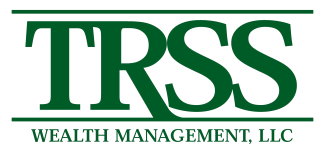
Benefits and Risks of Purchasing Investment Property
If you’re currently considering purchasing investment property, there are an equal measure of risks and rewards. Like any investment, risk can be managed, but you want to be aware of the risks prior to investing in property. And like any investment, there can be rewards, some quite large.
The following is a breakdown of both the risks and the rewards of purchasing investment property:
Risks:
- If you’re purchasing investment property to serve as a rental, you’ll have to run the risk of dealing with tenants. And while finding a good tenant is possible, you’ll also run the risk of having the property damaged or destroyed by your renters, or tenants simply skipping out on their lease. Also remember that the time between tenants can cost you a lot of money, as you’ll be paying all the expenses without rental income to help offset those expenses.
- If you’re purchasing investment property to flip for a profit, you run the risk of buying a money pit; uncovering more and more that needs to be repaired or replaced. Having to put more money into a property than expected cuts into any profit that can be made when selling the property, leaving you with a breakeven property, or worse, a loss.
- Property is much less fluid than other forms of investment. Depending on market trends, you can find yourself saddled with a property much longer than you planned. And even if you purchase a home to rehab and flip, there is no guarantee that the home will sell quickly, or at all.
- If you purchase property with a partner, you may end up with differing ideas on what to do with the property, whether to sell it or rent it.
- Because of the cost of purchasing real estate as an investment, a lot of your money is tied up in a single investment, and a quick sale should market conditions drop is typically not an option.
Rewards:
- Real estate is tangible, so you can see or touch your investment any time you wish.
- If you have done your due diligence, you can typically make a healthy profit on real estate investing, whether as a landlord or by rehabbing and flipping a home. And if you’ve purchased in a transitional area, holding on to your properties for a few years and then selling can bring in a healthy profit.
- Property values tend to be much steadier than other investments, so the likelihood of losing money on property is much lower than other, riskier investments. In fact, the longer you hold onto your income properties, the more your risk decreases.
- Investing in rental income can provide you with an income stream during retirement.
- While enjoying passive income, you’ll also be able to enjoy the tax benefits that come from owning investment property, with many of the costs of owing rental property tax deductible.
If you do decide to invest in property, spend some time researching trends, the area you are looking to purchase in, and start looking for a property or two to add to your portfolio.
*This content is developed from sources believed to be providing accurate information. The information provided is not written or intended as tax or legal advice and may not be relied on for purposes of avoiding any Federal tax penalties. Individuals are encouraged to seek advice from their own tax or legal counsel. Individuals involved in the estate planning process should work with an estate planning team, including their own personal legal or tax counsel. Neither the information presented nor any opinion expressed constitutes a representation by us of a specific investment or the purchase or sale of any securities. Asset allocation and diversification do not ensure a profit or protect against loss in declining markets. This material was developed and produced by Advisor Websites to provide information on a topic that may be of interest. Copyright 2021 Advisor Websites.

